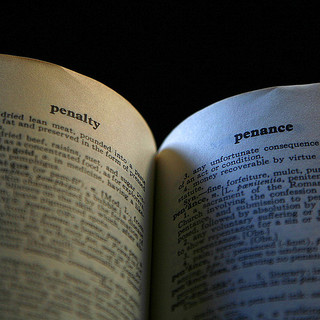On the Importance of Plain Language
Considering the implications of how we communicate and how we are communicated to is key to our understanding of the world around us. Alan Shapiro suggests that our key task, both as philosophers and educators is to be on the lookout for and to identify bullshit, and to educate our students in such a manner that they might do the same. In Bullshit and the Art of Crap-detection (1969) Neil Postman suggests,
“As I see it, the best things schools can do for kids is to help them learn how to distinguish useful talk from bullshit. I will ask only that you agree that every day in almost every way people are exposed to more bullshit than it is healthy for them to endure, and that if we can help them to recognize this fact, they might turn away from it and toward language that might do them some earthly good.”
Postman goes on to suggest that what’s needed to combat this “bullshit” is a knowledge of how language can be used to misrepresent the truth and mislead the reader. He advocates for a “knowledge of how to ask questions, how to validate answers, and certainly, how to assess meanings”, an independent mind.
This is significant to students of English. In Politics and the English Language (1946), Orwell writes,
“Modern English, especially written English, is full of bad habits which spread by imitation and which can be avoided if one is willing to take the necessary trouble. If one gets rid of these habits one can think more clearly, and to think clearly is a necessary first step toward political regeneration…Modern writing at its worst does not consist in picking out words for the sake of their meaning and inventing images in order to make the meaning clearer. It consists in gumming together long strips of words which have already been set in order by someone else, and making the results presentable by sheer humbug.”
Academic writing is frequently seen in conflict with the very nature of plain language. As Hornstein (2009) suggests,
“We have a kind of reverse aestheticism—if our writing is dense and unwieldy, filled with technical terms and convoluted sentences, we wear its lack of accessibility as a badge of honor…Academic writing derives its authority from certain conventions, some of them bordering on arrogance…The contempt that academics have toward that kind of writing is, in essence, contempt for the ordinary reading public. We assume they’re unable to grasp the subtlety of our thought. We think that writing for a broad audience requires ‘dumbing down’ our arguments. But that’s wrong.”
This is precisely why a discourse of how plain language academic writing is essential. Plain language is a human rights issue. As academics at publically-funded institutions, it is our role to communicate information in a way that is accessible and focused on the reader, to “cut through the bullshit and humbug”.
Readings/Resources
- Definitions of Plain Language: http://www.plainlanguage.gov/whatisPL/definitions/index.cfm
- Frankfurt, Harry. On Bullshit. New Jersey: Princeton UP. 2005.
- Hornstein, Gail. “Prune That Prose. Learning to write for readers beyond academe.” The Chronicle Review. The Chronicle of Higher Education. September 7, 2009. Web. 28 Jan. 2012. http://chronicle.com/article/Prune-That-Prose/48273/
- Kop, Rita, Hélène Fournier, & John Sui Fai Mak. “A pedagogy of abundance or a pedagogy to support human beings? Participant support on massive open online courses.”The International Review of Research in Open and Distance Learning [Online], 12.7 (2011): 74-93. Web. 26 Jan. 2012. http://www.irrodl.org/index.php/irrodl/article/view/1041/2025
- Orwell, George “Politics and the English Language,” 1946. http://www.mtholyoke.edu/acad/intrel/orwell46.htm
- Postman, N. (1969) Bullshit and the Art of Crap-detection. Paper presented at the National Council of Teachers of English Convention (Washington, DC). http://criticalsnips.wordpress.com/2007/07/22/neil-postman-bullshit-and-the-art-of-crap-detection/
- Shapiro, Alan. “The Essential Skill of Crap Detecting.” Teachable Moment. Morningside Center for Teaching Social Responsibility. Web. 26 Jan. 2012. http://www.teachablemoment.org/ideas/crapdetecting.html
- Tutorial on Plain Language from UoIT: http://www.youtube.com/watch?v=sn8ChVRjjyA
- RSS in Plain English: http://youtu.be/0klgLsSxGsU
- Plain Language Association International: http://www.plainlanguagenetwork.org/
- Plain Language http://www.plainlanguage.gov/
- The Complete Plain Words by Sir Ernest Gowers: http://www.ourcivilisation.com/smartboard/shop/gowerse/complete/index.htm
- Center for Plain Language: http://centerforplainlanguage.org/
- Accessibility for Persons with Disabilities Advisory Committee: http://www.uoguelph.ca/accessibility/apdac.shtml
- The Accessibility Conference: http://www.accessconf.ca/
- Centre for Open Learning and Educational Support, Universal Instructional Design: http://coles.uoguelph.ca/TSS/instructional_design/intro.aspx





Reblogged this on kylemackie.
I think I agree with Hornstein (though I admit, I’m not sure who that is) — but I’m not really sure what “reverse aestheticism” means… hmmm… perhaps that’s academic speak???